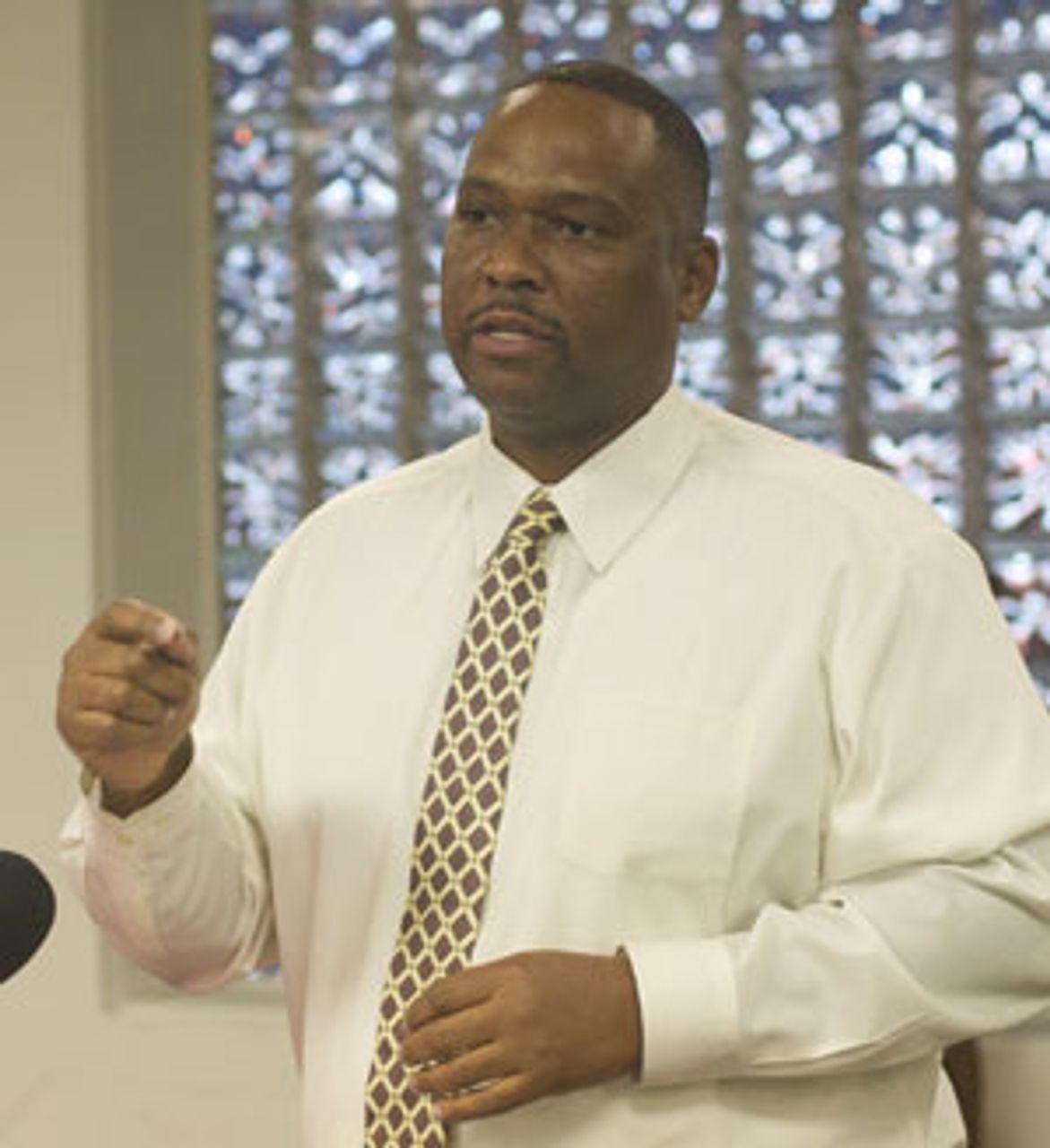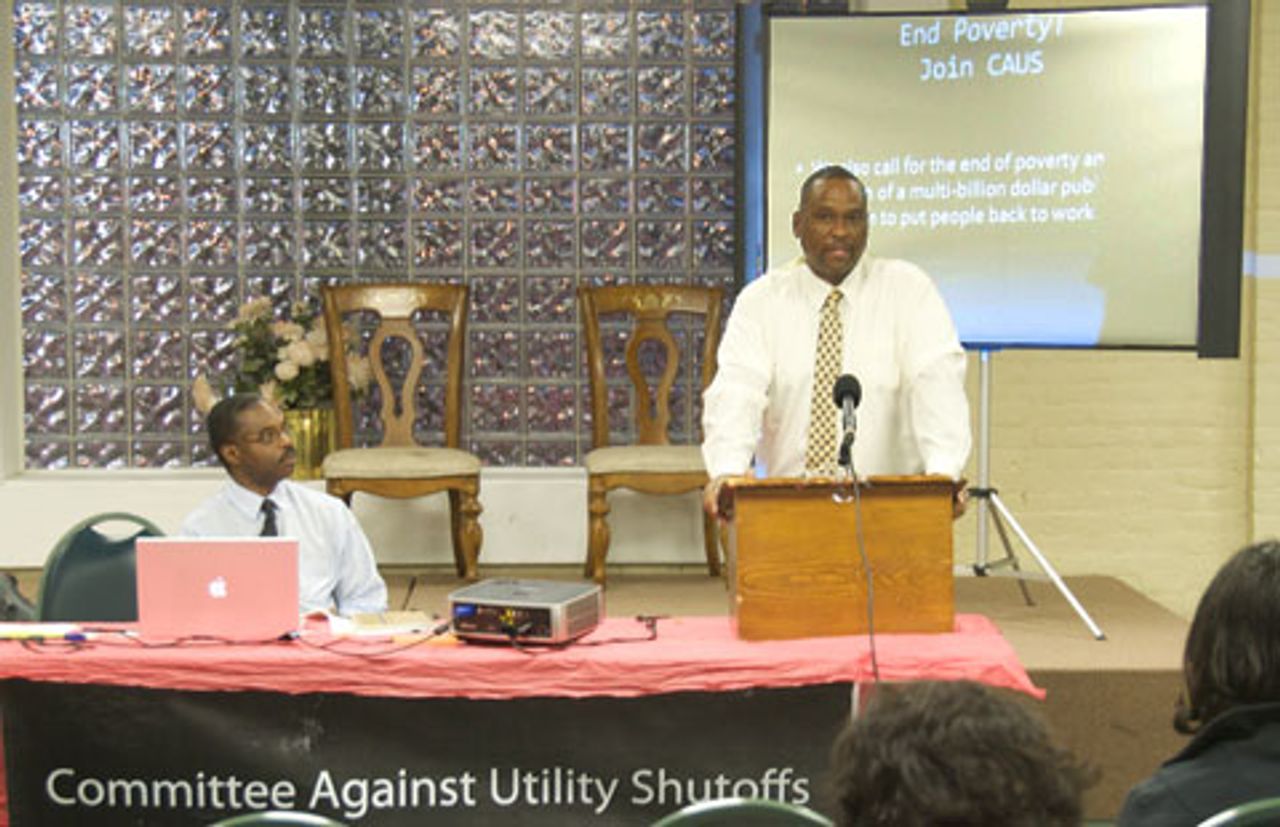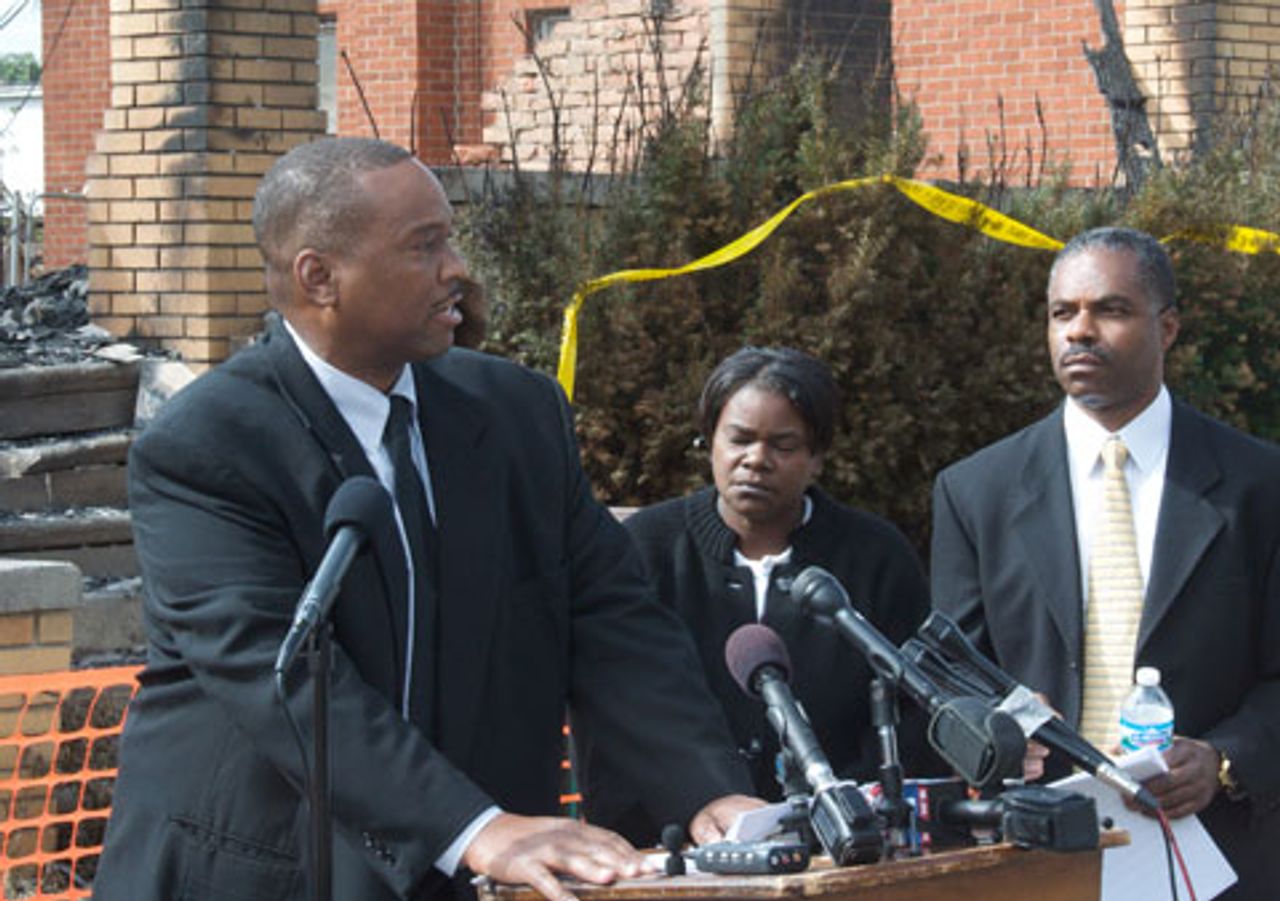The World Socialist Web Site and the Socialist Equality Party are encouraging the strongest possible vote for D’Artagnan Collier, the SEP candidate in the 9th District for the Michigan state House of Representatives on Tuesday. A vote for Collier is a vote for the only candidate in the Michigan elections who is addressing the severe crisis facing working people with a program that meets their needs.
 Collier at Detroit CAUS meeting
Collier at Detroit CAUS meetingDuring this campaign Collier has advanced the SEP’s program of basic social rights for the working class contained in The Breakdown of Capitalism & the Fight for Socialism in the United States. The SEP has adopted the concept that certain social rights are “inalienable” and must be guaranteed to every worker in a modern, complex society. Those rights include the right to a job, a livable income, decent and affordable housing and utilities.
Collier has made the issue of utility shutoffs a major tenet of his campaign. So far this year eleven Detroit residents have died in house fires as a result of utility shutoffs. In 2008 142,000 households in southeast Michigan, including Detroit, had their utilities terminated at some point by DTE Energy, the gas and electric provider for the region. In 2009 the shutoff rate doubled to 221,000 households in the same area. So far this year over 237,000 households have had their utilities terminated throughout all of Michigan from January through July with the number likely to reach half a million by the end of the year.
 Collier speaking to a westside Detroit CAUS meeting
Collier speaking to a westside Detroit CAUS meetingCollier is a founding member of the Committee Against Utility Shutoffs (CAUS) and supports its program calling for the nationalization of the utility companies under public control, with gas and electricity provided as a basic human right, not on a for-profit basis.
On the 7th of September, fires swept through several neighborhoods in Detroit burning down 87 structures and destroying whole residential blocks after 750 power lines came down during a windstorm. It was clear to everyone affected by the fires that the deteriorating power lines were the product of the indifference and neglect by DTE Energy’s drive for profits. However, Detroit’s Democratic mayor, Dave Bing, defended the company, calling the fires a “natural disaster” as a means of diverting responsibility from both the utility company as well as his own policies of cuts which resulted in inadequate fire protection.
Collier denounced the position of Mayor Bing, explaining that the fires in Detroit “are one tragic consequence of the subordination of the needs of working people to a handful of politically connected giant corporations, including DTE.”
Collier cited the massive profits DTE has made, including $315 million in the first two quarters of this year. The company has cut millions in costs, including from utility operations, tree trimmers and maintenance. DTE’s CEO, Anthony Earley, took home $9.2 million last year, and its investors have benefited from a policy of cost cutting and utility shutoffs.
 Collier speaks at the CAUS press conference in one of the Detroit neighborhoods most devastated by fire in September
Collier speaks at the CAUS press conference in one of the Detroit neighborhoods most devastated by fire in September“DTE’s relentless drive for profit has led to the deaths of many Detroit residents in house fires after utility shutoffs,” stated Collier at a press conference called by CAUS after the September 7th fires. “It has also contributed to the deaths of two utility workers from electrocution in the past four months. Now this same profit motive has led to a spate of fires across the city.” Collier noted that DTE was never held responsible for these events thanks to the close ties it has with Detroit city officials (Mayor Bing sat on DTE’s board of directors from 1985-2005) as well as ties to the Democratic Party governor, Jennifer Granholm.
Colliers’ Democratic opponent in this election, the incumbent candidate Shanelle Jackson, should also be added to the list of politicians in the pocket of DTE. Since Ms. Jackson has been in office, DTE has been one of her most consistent contributors, providing close to $4,000 in regular amounts since 2007.
Detroit and Michigan have one of the highest rates of unemployment and poverty in the country, however neither the Democratic or Republican Party candidates running against Collier even bother to address the issue. The official unemployment rate in Michigan is presently 13 percent, after reaching a high of 15 percent in March 2010. There has been a $12,000— 21.3 percent—decline in the states’ median income over the past decade as a result of the unrelenting destruction of jobs by the auto industry. This is a stunning statistic unmatched in any other state in the country.
The poverty rate in Michigan is just as startling, but in line with national statistics, rising from 9.9 percent in 2000 to 14 percent this year, the highest in 16 years.
It is in Detroit, where the destruction of the living standards of auto workers—once the highest in the country—finds its sharpest consequences. Detroit’s official unemployment rate is 28.9 percent. Combined with those who are underemployed—those working part time or who have given up looking for work and are not counted—the real rate is close to 50 percent.
According to the latest US Census reports, based on information from 2009, the poverty rate in Detroit is 36.4 percent, up from 33.8 percent in 2008. For children under 18 it is officially 50.8 percent, levels comparable only to those of the Great Depression.
 Terry Douglass
Terry DouglassOn Saturday Collier campaigned in his district at a local K-Mart store where he spoke to workers about the program of the SEP. Terry Douglass, a social worker from Chicago visiting his fiancée in Detroit told the WSWS, “Conditions in Chicago are like they are in Detroit. My caseload has doubled in the last two years. More and more people are losing their jobs. More people are losing their homes. Companies that started out as little bitty businesses become worldwide corporations through our efforts and we become the forgotten ones.”
Douglass said he thought there needed to be a movement organized to bring working people together. “The people will have to come together as one. There are too many divisions between us. I don’t see any good candidates at all.” Referring to Collier, Douglass said, “I would definitely support anybody who’s for the workingman.”
 Tiffany Johnson
Tiffany JohnsonTiffany Johnson, a nursing student at Henry Ford Community College, said she thought a program for socialism was extreme, “But, I have to agree, the conditions themselves are getting extreme.”
Tiffany said one of the most important things for her was education. “Education is very important to me. I am fortunate that both of my children attend better schools within the Detroit Public Schools. I feel bad about the fact that not all the schools within the DPS are the same. I know that not all children have the same opportunity and I think that’s wrong. We need better schools for everyone.”
 Gregory Cooper
Gregory CooperGregory Cooper, a worker in his 50s, was especially concerned about unemployment and health care. “I lost my job at Dalgleish Cadillac after the old man decided to close the dealership,” said Gregory. “He wasn’t making any money and it fit GM’s plans to downsize. I had worked there for 15 years and in the industry for 32.
“I am really concerned about health care,” he continued. “I could not afford the COBRA benefits. They were $580 a month. I wish that there were another place I could go to. It’s like we are living in a third world country now. Politics is such a dirty game. This might be the first time I might not vote. Many of my friends feel like that.”
